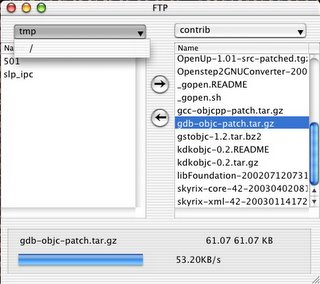(the post was mysteriously lost, so I try to write it again... and of course it didn't came out the same... some of the initial feeling was lost as I thought about it again)
I watched a video by Alan Kay [
part 1 ]
part 2 ] and it made me feel small and bad. And it was not because of some
nostalgia that sometimes creeps up my back when I see stuff from the pioneering time of computer science. I was impressed what was done in those times! And some things can't be still done today such easily
Maybe the most impressive thing were the small programs written by children! They were nice and stimulating programs and I would have a hard time doing something alike with the tools I know (even using languages as Objective-C or Java), really! And those kids wrote one or two pages of code for drawing programs with interactive menus and design constraints? I think that controlling the computer and being able to program it is very important and today, even after almost 20 years of programming, I feel it
distant and
unnatural.
Another interesting thing were the interfaces. Today due to use of the Mac and the interfaces derived from IBM's CUA (motif, windows, os/2) and theyr blind clones like KDE or GNOME limit our perception. OpenView would be regarded strange (not to speak of Amapi's natural interface).
The interfaces of the programs presented tehre are instead very clean and present concepts that aren't used much today. The Alto programs striked for example with the non-intrusiveness of their menus, the modeless use... but also older programs were interesting in their use. The direct manipulation of objects in the Rand program reminds me a lot of the Newton.
We have now very powerful hardware and operating systems, but their programs run at reaosnable speed on their systems... while today often we think about excess in functions or eye-candy... and less about usability. Also thing pile up. The interface to write this blog isn't as nearly as intuitive as the text editor on the Alto was (well... it also lost my first blog entry). I write inside a browser which handles dynamic contents... the browser runs on the OS itself. The result is miserable, even if a lot of power is "stimulated" little power is "unleashed".
One last thought is about the use of the computer in education. I feel warm and cozy that Alan thinks like me: an important liberal art is important. (I translate this into: teaching to use Office in elementary school is horrible). Also kids could be teached a much more creative use of the computer as the Alto examples show. When I was 14 years old I was tought LOGO, now people at high school learn visual basic... I think I was better off! Much better!
